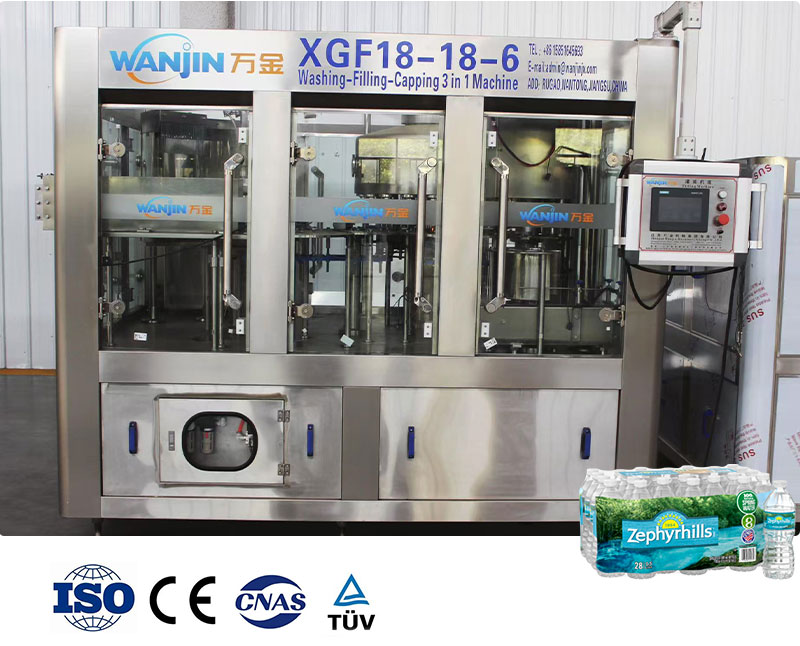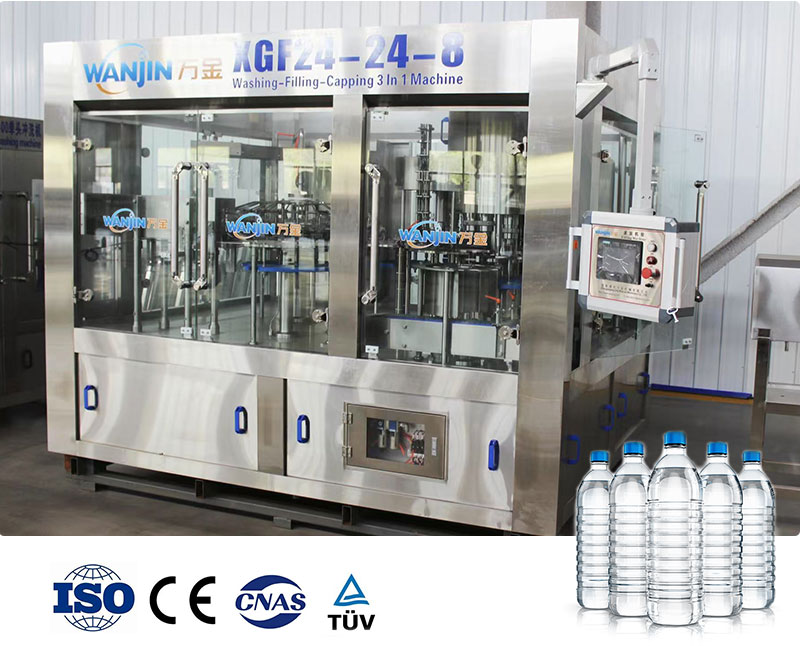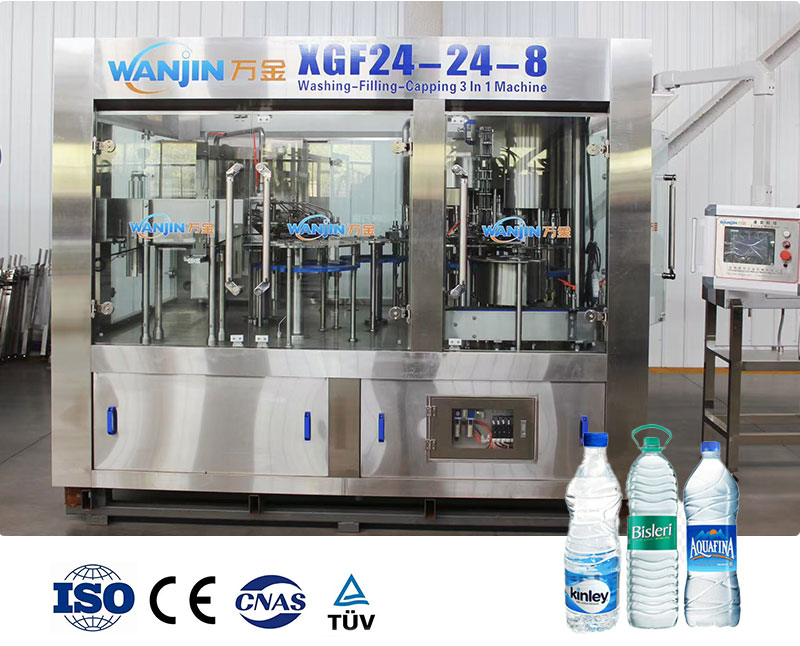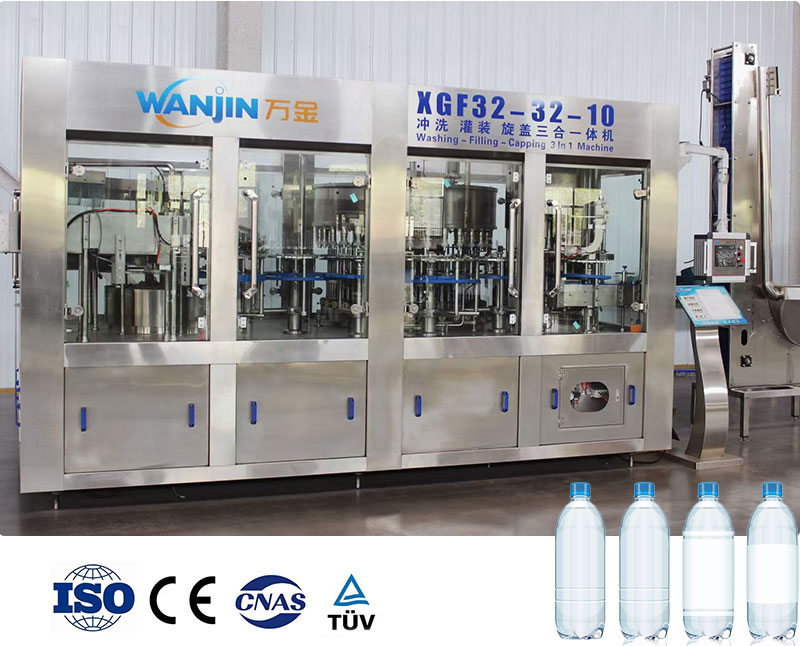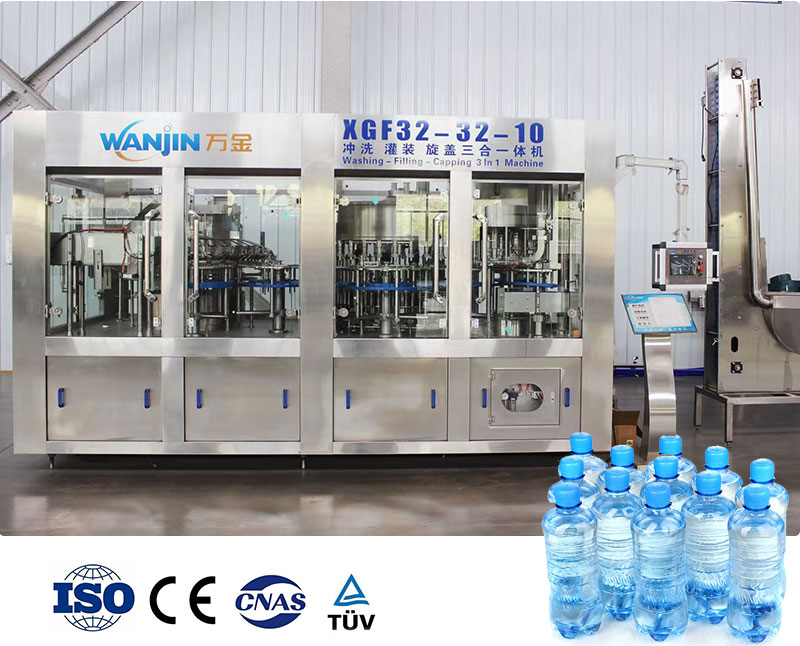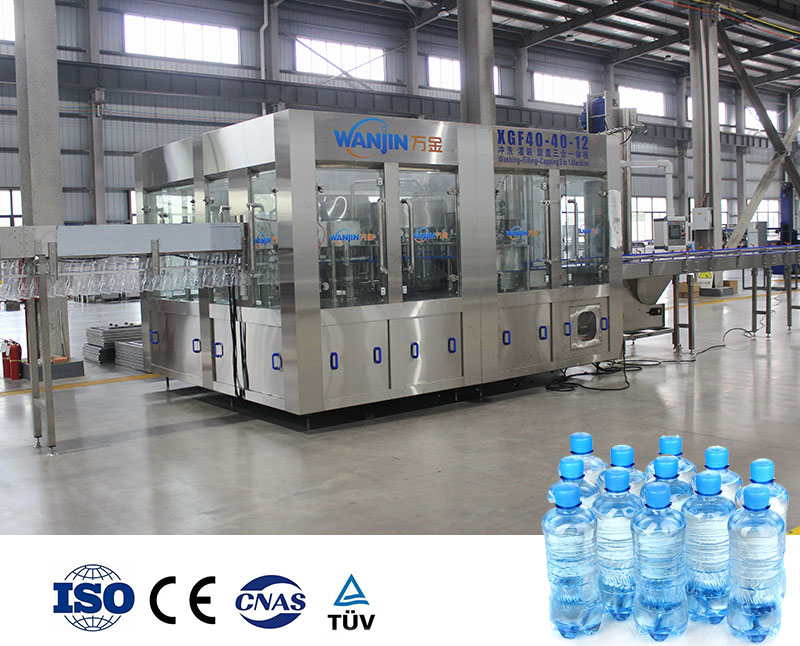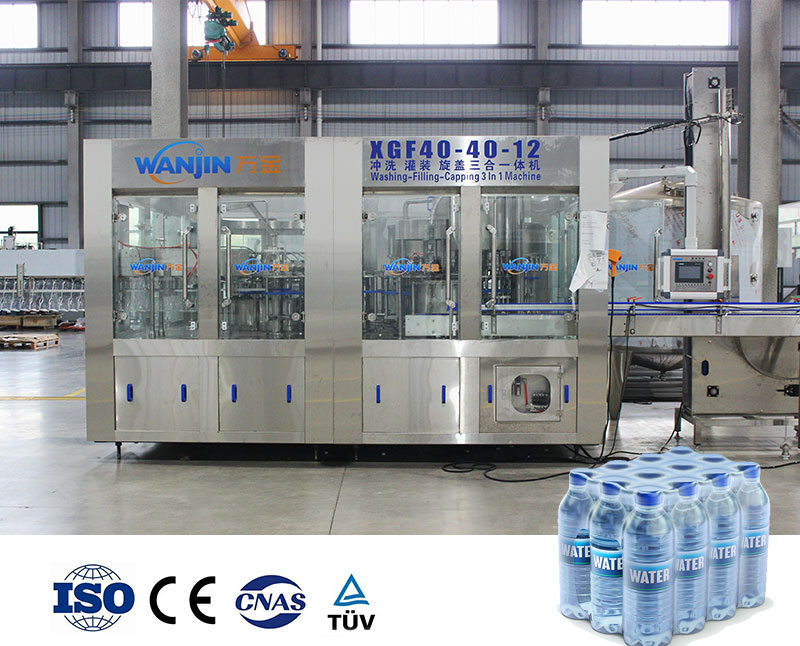Water Filling Machine
Water filling machines are used to fill liquid products, such as water, juice, soda and other beverages into bottles. They often incorporate rinsing, filling, and capping functions into a single automated process, ensuring efficiency and hygiene standards are met. Water filling machines are crucial in maintaining product quality, minimizing contamination risks, and optimizing production throughput in water bottling plants.
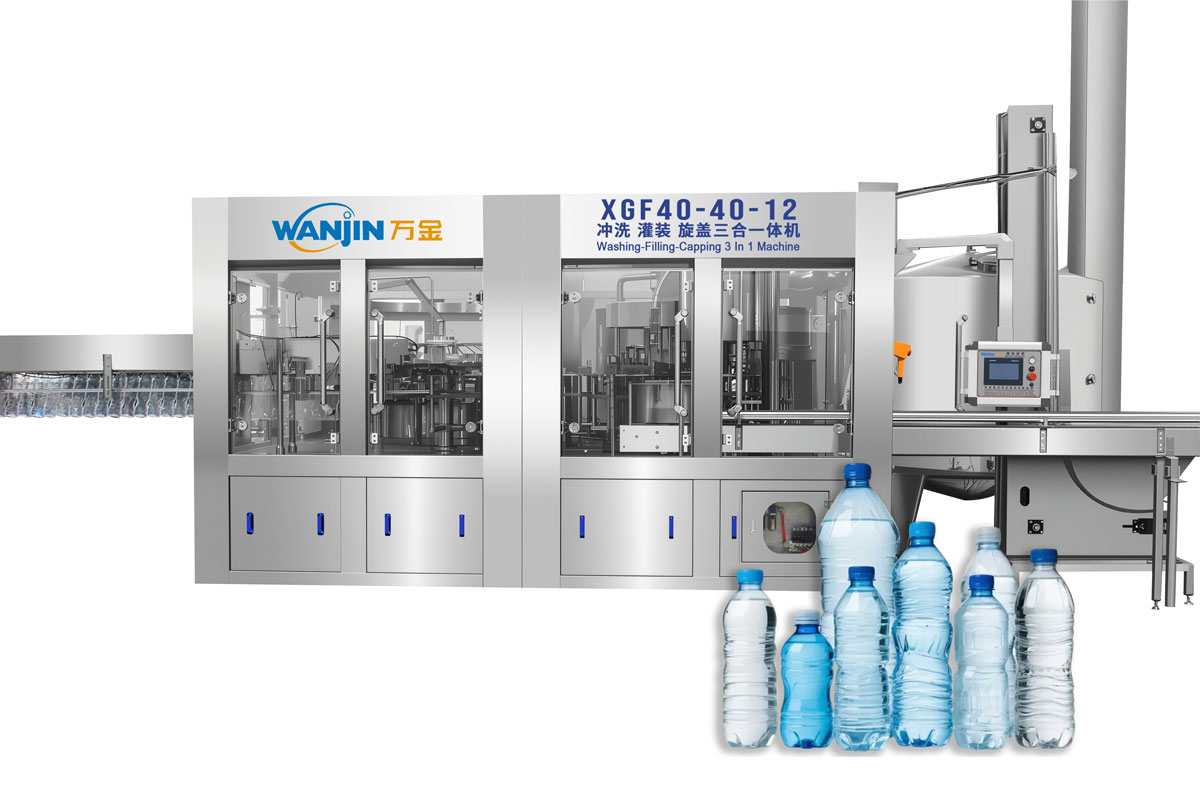
Benefits of Water Filling Machine
High Efficiency & Automation
Fully automatic control system integrates bottle rinsing, filling, and capping in one machine; Minimizes manual intervention, reduces labor costs, and ensures stable production.
Accurate Filling with Less Waste
Equipped with precise flow meters or liquid level control to guarantee consistent bottle volume; Reduces product loss and saves water resources, improving overall cost efficiency.
Hygiene & Safety Assurance
All parts in contact with water are made of food-grade stainless steel (SUS304/316), corrosion-resistant and easy to clean; Optional CIP (Clean-in-Place) system ensures hygienic production without secondary contamination.
Flexibility & Wide Application
Compatible with various bottle types (plastic, glass) and capacities (from 0.3L to 5L or even large barrels); Suitable for pure water, mineral water, juice, and other liquid products, meeting diverse market demands.
Send Inquiry
FAQ
The water filling machine operates on the principle of liquid pressure filling. When the pressure is high, the liquid flows into the bottle using its own weight. This process occurs when the pressure of the liquid reservoir matches the volume of air present in the bottle.
Bottles per minute (BPM) is a common measure for determining how fast a water filling machine can actually fill bottles. The measurement is a simple equation, with a few variables. For automatic machinery, it can be determined by the number of fill heads times the number of cycles run per minute.
Consider the nature of your product and its impact on the machine type. For instance, a dense or thick liquid requires specific machinery like piston fillers to manage consistency efficiently. Next up are receptacle specifications. You will need precise nozzles that cater to bottles with narrow openings seamlessly.
Water filling machines can fill various types of containers, including plastic bottles, glass bottles, and aluminum cans. They can handle different shapes and sizes, from small single-serve bottles to large gallon containers, by adjusting the machine settings or using different attachments.
Common filling methods include gravity filling, where the water flows into the container by gravity; pressure filling, which uses pressure to force water into the container; and vacuum filling, which uses a vacuum to draw water into the container.
Capacities can vary widely, from small machines that fill a few hundred bottles per hour to large industrial machines capable of filling tens of thousands of bottles per hour. The capacity depends on the specific model and the requirements of the production line.
Hygiene is maintained through regular cleaning and sanitization of the machine, especially the parts that come into contact with water. Many machines have CIP (Clean-In-Place) systems that automatically clean and sterilize the internal components.

